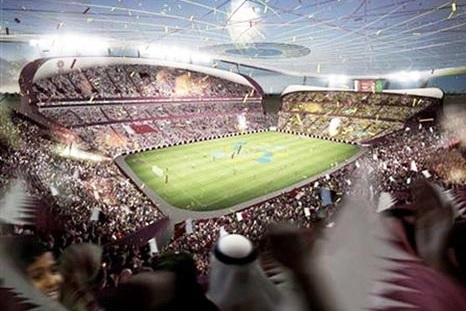A quick check of the FIFA world rankings will show that Algeria is currently the highest ranked Arab nation, at 21st place. Eight places below them is Tunisia while Morocco and Egypt, who had previously been ranked as high as 10th (1998) and 9th(2010) respectively, don’t even make the top 50. Egypt’s lofty position was, worryingly, just five years ago while Morocco reached their highest position in 1998.
None of the four countries mentioned, arguably the leading Arab football nations, has built upon their success at World level despite continued success in the Asia Cup and Africa Cup of Nations and that is down to a combination of factors, some of which can be affected by national associations, some that can not.
The awarding of the 2022 World Cup to Qatar gave a massive boost to Arab football development and was heralded for the new impetus it would bring to the development of football in the region. However the current doubts that hang over that tournament leave a big question mark. The potential benefits of a first World Cup in the region would, for many, outweigh the negatives but the current situation with FIFA and the investigations into its operations is a force that the Qatar World Cup could have done without.
The findings of an Arab youth survey ( ASDA`A Burson-Marstellac) showed that 65% of young Arabs think the Qatar World Cup will encourage the development of football across the Arab world. If Qatar is stripped of the tournament it will blight a whole generation of footballers in the region and such a setback would be a body blow particularly as footballers at the opposite end of the spectrum to grassroots, Arab professionals, are blazing a trail, particularly across top European leagues.
It’s no coincidence that Algeria is the top ranking Arab nation and the reason they are so well placed is that so many of the players in the Algerian national team ply their trade in Europe, including Sofiane Feghouli ( Valenica), Islam Simani (Sporting Lisbon), Riyad Mahrez (Leicester City) and Nabil Bentaleb (Spurs).
And therein lies the crux of the problem. Promising young Arab footballers force their way through a poor grassroots system into what ever professional league exists in their nation but stall there. If they are good enough they want more and better which is why they seek to ply their trade in France, Germany, Italy or even England. That way they develop and improve and bring that improvement to their international teams but they are taking their talent out of the domestic pool and indigenous domestic football does not develop.
Nowhere is that a more relevant case than in Saudi Arabia. Football there developed in leaps and bounds after the Saudi royal family gave the sport massive support in the 1990s. Professionalism was introduced after Asian Cup success, in 1988 and again no coincidence that the foundation of a professional league was directly responsible for the Saudi national team qualifying for four consecutive World Cup finals; 1994-2006. In 1994 Saudi Arabia became the first Arab nation to reach the knock-out stages of a World Cup finals tournament. Unfortunately that momentum was not maintained and that, paradoxically, was down to the paucity of grassroots football, domestically, and the influx of foreign players drawn to the Saudi league by vastly inflated contracts.
It is no secret that Arab money is gushing into European football like an over productive oil well with some of the very top clubs benefitting from Middle Eastern investment. Manchester City and Paris St-Germain have Middle East owners while Barcelona and Arsenal have major Gulf companies on their shirts. But that is buying into existing organisations and established leagues, a quick fix if you like, as is the modern way.
If only there was a change of mindset, by the money men, and just a fraction of the investment already made at the top end of the pyramid, was re-directed to grassroots development, what kind of revolution would there be in Arab football development then?
There is no question that there needs to be a radical rethink by Arab footballing nations if the success that is being achieved by their individual players, on foreign fields, and to a lesser extent by national sides, is not to be the only success.
Unless Arab nations can build grassroots football up to the necessary standard to complement aforementioned achievements then the void that exists between domestic football in those nations and the world stage will not only persist but grow larger.
Written by Brian Beard

